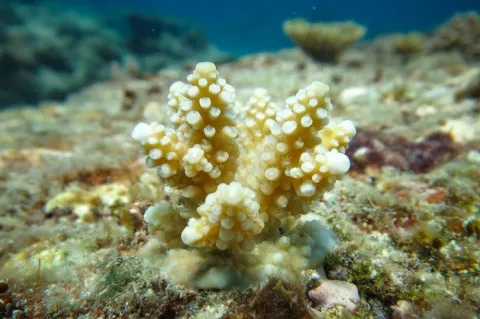Recovery of coral reefs
Understanding the recovery dynamics of corals is paramount to enabling the effective management of coral reefs. While detailed mechanistic models provide insight into reef recovery patterns, colony scale monitoring is not viable for reefs over a large geographical extent, such as the Great Barrier Reef (GBR).







